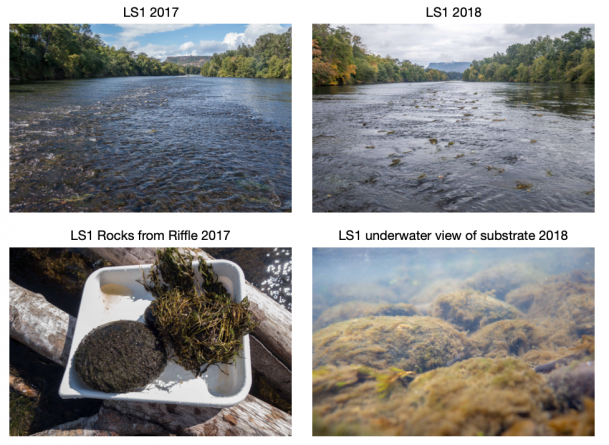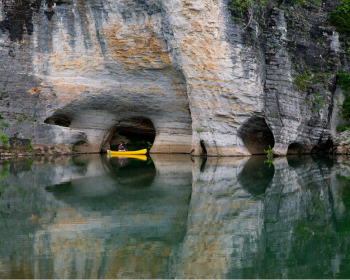Earthrise Secures Favorable Ruling to Protect Rogue River Water Quality
On June 9, 2021, Earthrise received a favorable summary judgment ruling in a Clean Water Act citizen suit holding that the City of Medford violated the Act by discharging pollution into the Rogue River that contributes to exceedances of Oregon’s “biocriteria” water quality standard.
The suit, filed in 2018 on behalf of Northwest Environmental Advocates (NWEA), alleges that Medford’s Regional Water Reclamation Facility has routinely discharged nutrients (nitrogen and phosphorus) at excessively high concentrations, causing adverse changes to the downstream aquatic ecosystem such as the growth of nuisance algae and aquatic plants and a decline in the macroinvertebrate community. The suit has its origins in a 2013 report prepared by biologist Rick Hafele for the Rogue Fly Fishers & Federation of Fly Fishers in which he reported “consistent and significant changes … in composition, diversity, and abundance” of the algae and macroinvertebrate communities downstream of Medford’s outfall. Mr. Hafele also served as NWEA’s liability expert witness in this case.
In a Findings and Recommendation written by Magistrate Judge Mark D. Clarke of the U.S. District Court for the District of Oregon, the Court found that Medford had violated its National Pollutant Discharge Elimination System (NPDES) Permit and the Clean Water Act by discharging pollutants that cause or contribute to violations of Oregon’s “biocriteria” water quality standard. That standard provides that “Waters of the State must be of sufficient quality to support aquatic species without detrimental changes in the resident biological communities.” (OAR 340-041-0011).
Medford had previously stipulated for purposes of this litigation that its discharges do in fact contribute to in-stream biocriteria violations, but it had preserved a “permit shield” defense under Section 402(k) of the Clean Water Act and OAR 340-045-0080. In its Findings and Recommendation, however, the Court rejected that defense, holding that Medford’s Permit unambiguously requires compliance with the biocriteria standard.
While the Court found that NWEA is entitled to summary judgment as to liability on its biocriteria claim, it found that disputes of fact prevent either party from being granted summary judgment on two other claims in the suit: one relating to alleged violations of Oregon’s state-wide narrative criteria at OAR 340-041-0007, and the other targeting Medford’s alleged failure to “take all reasonable steps to minimize or prevent” its Permit violations. Those two claims thus remain for trial. Yet the Court rejected Medford’s argument that subjective evidence (e.g., eyewitness testimony by NWEA members and others) of the “deleterious effects” and “offensive aesthetic conditions” observed in the Rogue River is insufficient as a matter of law to prove violations of the state-wide narrative criteria, thereby paving the way for NWEA to introduce such testimony and other similar evidence at trial on the two remaining claims.
The case has been bifurcated into separate liability and remedy phases, and NWEA and Medford previously entered a partial settlement agreement that resolves some of the claims in the case. If neither NWEA nor the City of Medford objects to Judge Clarke’s Findings and Recommendation, then the parties would likely be heading for a trial on claims two and three and separate remedy proceedings on the biocriteria claim.
The case is Northwest Environmental Advocates v. City of Medford, D. Or. No. 18-cv-00856-CL.
Attorneys Jamie Saul and Lia Comerford are handling this case for Earthrise, on behalf of NWEA.

Photographic of detrimental changes to the native aquatic community in the Rogue River downstream from Medford’s Regional Water Reclamation Facility. Photo Credit: Rick Hafele.
Earthrise Law Center is located in Wood Hall on the Law Campus.
MSC: 51
email earthrise@lclark.edu
voice (503) 768-6736
fax (503) 768-6642
Allison LaPlante
Earthrise Law Center
Lewis & Clark Law School
10101 S. Terwilliger Boulevard MSC 51
Portland OR 97219

